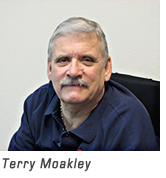 We are living in some difficult times. There are still many Americans unemployed, and the political rhetoric seems to get more polarizing with each passing day. It’s really easy to place the blame on one or many elected officials, but those of us who are everyday people—the vast majority of Americans—have a responsibility, too. We can be heard on Election Day.
We are living in some difficult times. There are still many Americans unemployed, and the political rhetoric seems to get more polarizing with each passing day. It’s really easy to place the blame on one or many elected officials, but those of us who are everyday people—the vast majority of Americans—have a responsibility, too. We can be heard on Election Day.
And for those of us who are veterans of military service, disabled or not, the responsibility to vote should be even more important. I volunteered to serve in the United States Marine Corps in 1966, and to this day and until the day that I leave this world, I will be proud that I served my country. And I will continue to vote in every future election.
Election Day in the United States is the Tuesday after the first Monday in November, so put Tuesday, November 6th, 2012, in your calendar because it is the next Presidential election as well as the day we vote for a third of the U.S. Senate, all U.S. Congress members, and most state and local government officials.
In Presidential election years, however, Americans have the opportunity to help to choose the candidates of their choice in state-by-state “primary elections” or “caucuses.” The main difference between a primary and a caucus is that a primary is an election of a candidate(s) to run in a future election against a candidate from a different political party, whereas a caucus is a meeting of a political party at which party members discuss and select candidates to run for higher office.
The primary/caucus season started in early January and it will continue through nearly the end of June. As of this writing, just six primary elections and five caucuses have been held, so for the majority of military veterans out there, know that your vote in a primary election or caucus is very important to the future of this great nation, too.
Including the upcoming March 6th “Super Tuesday,” there are 19 primary elections and eight caucuses in states, plus a primary in the District of Columbia and caucuses in Guam, Puerto Rico and the U.S. Virgin Islands during the months of March and April. A lucky 13 states will hold primary elections in May and June, but don’t assume that the choice of major party candidates will be all said and done by then. Big population states like California, New Jersey and North Carolina hold their primaries during May or June, so if races are close, many may not be decided until all registered voters have had their say.
I found the League of Women Voters’ Education Fund website, www.vote411.org, to be an easy and incredibly useful place to learn when primary elections or caucuses will be held in your state, how to register, where to vote, even information for those serving now in the military or travelling overseas during an election. Or if you prefer to get such information from a government entity, go to the U.S. Election Assistance Commission website, www.eac.gov and click on the “Resources for Voters” tab.
If you are a veteran, always remember that you served in our military to protect the freedom of Americans and to preserve the rights that we cherish in this country. Voting in a primary election or a caucus and in the November 6th general election is one of those rights. Exercise it with the humility and the dignity that military service instills in every veteran.
Terry Moakley
Chair of the VetsFirst Committee
